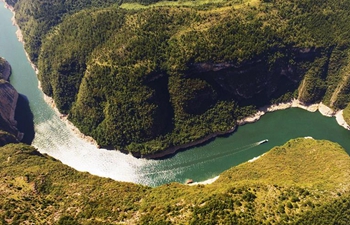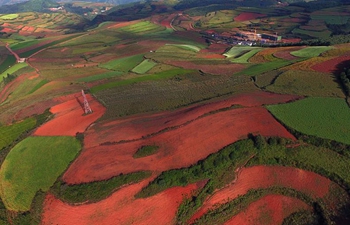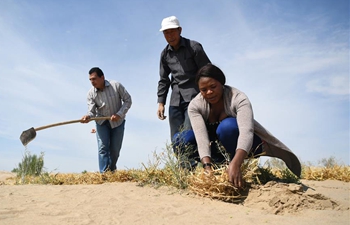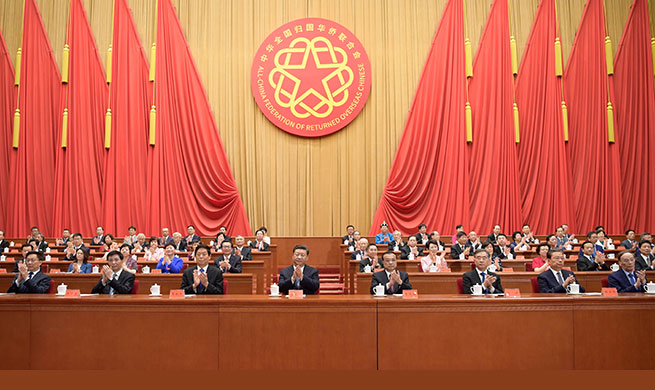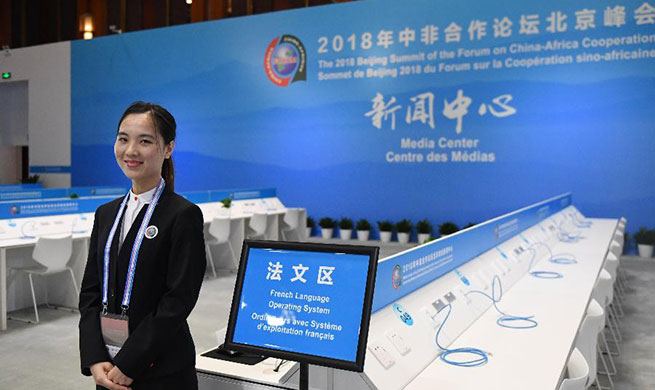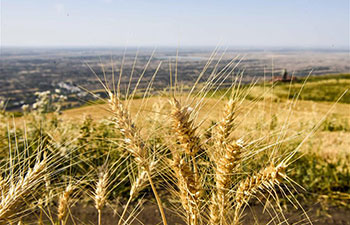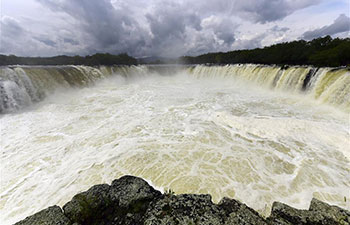by Zhou Xiaotian and Cheng Nan
LANZHOU, Aug. 30 (Xinhua) -- With decades of success against desertification, China shares its modern techniques and experiences in sand control with African countries.
Elina Shekupe Nakanyala, a Namibian agricultural official, came to China for the first time to attend a training program about desertification control in Minqin County, northwest China's Gansu Province, this year.
Under instruction from Chinese technicians, Nakanyala dug grooves into the ground and filled them with grass, skillfully using a spade to build a stretch of grass pane sand fence, a proven method to alleviate shifting sands and conserve water.
"Nearly a quarter of Namibia is covered by sand. It's a matter of primary importance to learn effective techniques against desertification so that we can solve food problems," said Nakanyala.
The training program has been held in Gansu for almost 30 years, with nearly 1,000 technical workers and government officials from 87 countries trained, including those in Africa. The government-sponsored training courses combine in-class learning and field practice, focusing on theories and techniques of desertification control as well as ecological restoration.
"I really cherish this opportunity to study in China," said Kabo Mogotsi, a Botswanan official of agriculture, who is also on this year's training program. "I hope for more collaborative efforts against desertification between our two countries."
Minqin is a man-made oasis located between Badain Jaran and Tengger, two large deserts in China, with the area totaling 85,000 square kilometers.
In an effort to keep the deserts from converging, a vast haloxylon forest planted by the locals has bound the sand tightly to the ground. The haloxylon species is a sand-fixing plant used abundantly since the 1970s in areas with low precipitation.
"I have been to many countries, but it is rare to see places like Minqin," said Aymen Gadallah, an Egyptian desert researcher. "Chinese sand fixation and afforestation technologies have played a positive role here."
"With automated equipment, about 330 hectares of grass pane sand fence can be created each day. And we use spray and drip irrigation to accelerate the growth of the plants," said Liu Hujun, director of International Cooperation Center of Gansu Desert Control Research Institute.
China has reversed the expansion of its deserts. An average of 4,400 square kilometers of desertified land has been restored each year since 2000, according to statistics.
"China is at the forefront of sand prevention and control," Liu said. "It is urgent to share our methods with other parts of the world."
"Africa has entered a stage of rapid development and should take actions as early as possible to maintain sustainable development," said Li Fengting, a professor of UN Environment-Tongji Institute of Environment for Sustainable Development in Shanghai. "Chinese environmental technologies are more application-oriented with lower costs, which is ideal for Africa."
In 2017, the China-Africa environmental cooperation center was launched in Kenya, and China announced an international alliance for green development under the Belt and Road Initiative with the UN Environment Programme (UNEP), to provide the experience of ecological governance to more countries plagued by desertification.
"China has created new technologies and practices in the construction of a green homeland," said Erik Solheim, executive director of UNEP. "Not only does it meet domestic needs, but also brings benefits to developing countries in Africa."







